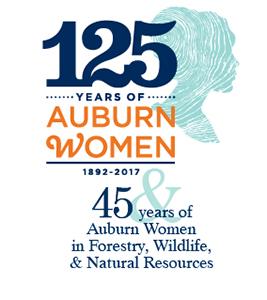
Celebrating 125 Years of Auburn Women and
45 Years of Women in Forestry, Wildlife and Natural Resources
Alumnae Spotlight
In honor of this important milestone, the School of Forestry and Wildlife Sciences asked several of its female graduates to share their
career perspectives and the influences in their lives that can be attributed to their success. They also provided advice for current students and new graduates,
and insights about how the school can better support women pursuing natural resource-based careers.
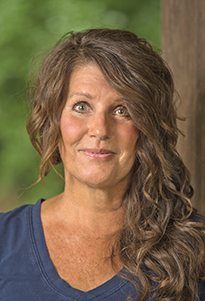
Nina Dowling Payne ’79
Forest Management
Nina is currently a research associate
with the Southern Forest Nursery
Management Cooperative.
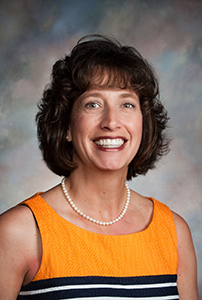
Ashley Parkman Smith ’95
Forestry Operations
Ashley is director of education
programs for the
Alabama Forestry Association.
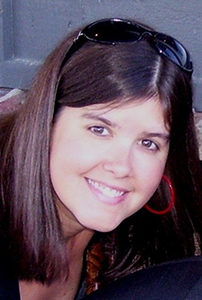
Cindy Lowry ’96
Wildlife Sciences
Cindy is executive director
of the Alabama
Rivers Alliance.
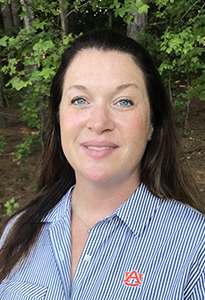
Jocelyn Wilson ’00
Forest Management
Jocelyn is currently
planning and inventory manager
for Weyehaeuser.
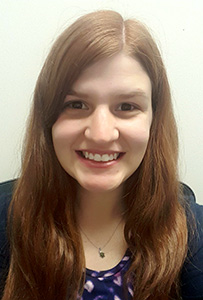
Sarah Lessard ’17
Natural Resources
Sarah is a PR specialist for the
Florida Fish and Wildlife
Conservation Commission.
Meet
Our
Interview
Panelists
What do you contribute to your success as a woman in a natural-resource based career?
NDP: The contribution of my parents by their lack of discouragement (this was in the 1970’s!) in my choice of career field made all the difference, because I was never told by those most important to me that I should not go into forestry.
APS: Success for me is measured in a good day’s work, in doing a job one loves, and in having a mutual respect for and caring about others.
CL: I was fortunate to have a variety of strong women in all stages of my life to help give me the courage and understanding of how to succeed as a woman in whatever field I chose. I am also fortunate that my career path led me to the nonprofit side of natural resources, where women are much more common.
JW: One of my biggest influences is my mother. She was a single mother, working her way through college in a science related field. She completed her masters and I watched her excel in her career. She has been such a great role model of a strong, independent woman who can accomplish anything she sets her mind to.
SL: So many things! All of my professors, supervisors, and mentors who encouraged me to follow my dreams and constantly reminded me of my potential, and my peers and classmates who helped me along the way.
What area of your field/industry do you see the most growth potential for women?
NDP: The field of consulting forestry has tremendous opportunities for women foresters, as there are very few in the Southeast. Because family-owned timberland is often inherited by widows and/or daughters, the perspectives of and communication tools offered by women foresters can fill a role in maintaining the integrity of timberland management for the family.
APS: From field work to communications, mapping to planning, and including areas not yet defined, the forest industry offers growing career paths. Perhaps women did not once gravitate to forestry because of the amount of field work typically associated with such careers. However, women care about and for the environment and the sustainability of natural resources as much as men do. Lots of people live on this planet so responsible decisions about natural resources are a necessity.
CL: In my experience, it is harder to be assertive and confident as a woman and not be labeled in negative ways. That makes it harder for women to work their way up to management and executive level positions. I believe things are changing rapidly, though, and we are better preparing young women to be comfortable in leadership positions.
JW: Currently, I think the most growth potential for women in the industry is into leadership positions. The work current work force is facing a high amount of retirements over the next few years. All facets of business are looking for top notch employees to replace retiring leaders.
SL: I think all three fields (i.e. wildlife, forestry, and natural resources) as a whole have high growth potential for women. These fields were historically male-dominated, but seeing how many women have been successful in these fields in really inspiring. I hope they continue to diversify.
In what ways/means do you feel the school could best support its female students and graduates?
NDP: For those female forestry students who did not grow up ‘in the woods’, the exposure of working in the woods is invaluable because it is usually long, hot, dirty, hard work that cannot be adequately described in the classroom. Learning and practicing skills to communicate and deal with all types of people would be helpful. In addition, broaching the subject of the probability that most female students will have families and responsibilities that go with them, and discussing ways to blend work and home life in a male-dominated field is important.
APS: The faculty and staff at SFWS ranks high, wanting ALL students to succeed and do well. Long after students graduate, these same people seem to support and motivate in ways that go above and beyond the norm.
CL: I think that the school can make sure women are given opportunities to get out of their comfort zone and take on roles and responsibilities that they might not naturally think they are capable of or even want to do. I honestly feel Auburn did a good job of this when I was in school. When I was in the Wildlife Science program, many of my male classmates were hunters, so they already had some level of knowledge of what we were being taught and why management of game species was important. My dad and brother hunted, but for most the part, I was pretty uninformed about any of that. However, I always knew that I was expected to perform the requirements of the class, just as everyone else did.
JW: By exposing students to successful professionals from industry, government and all other sectors in and outside the classroom. A mentor program with successful alumni is also a great way for the school to help facilitate student growth and networking.
SL: A suggestion would be to organize seminars or brown bag lunches where women, especially alumni, could give presentations to highlight their successes (and the adversities they faced) in our fields. Graduate Women in Science, which is university-wide, is a great organization, so partnering with them on events may be beneficial.
What advice would you give a new female graduate?
NDP: I would give the same advice to both male and female graduates – save your money and buy timberland! Managing timberland that you own is the best way to learn the satisfaction that comes from implementing a successful forest management plan as well as how to deal with problems you encounter as the owner. Also, be adaptable in your work-life balance because your life is probably not going to turn out as you have it planned now.
APS: Make good choices. Work hard. Prove to yourself that you can do the job. Allow a gentleman to open a door for you, but understand you also have to open your own doors. Help others understand that trees are a renewable, natural resource. Forests can be managed sustainably. Take care of the forests and by doing so, you will take care of wildlife, water resources, people, and so much more. Always remember that YOU are AUBURN. War Eagle!
CL: I would say never doubt yourself and don’t be afraid to sell yourself when you are trying to get a job or a promotion. If you have accomplished important things while in school, let people know about it. I don’t mean overly boasting about yourself, but rather to accept credit when it is deserved, and to be proud of what you have done.
JW: Although this is a male dominated industry, hard work and persistence will open up opportunities. You are stronger than you think and you can accomplish anything you set your mind to.
SL: There are so many possible career paths in natural resources! Do not get discouraged if you don’t immediately land your dream job. Connections are super important, so be sure to keep in touch with your peers and mentors. Be open to new possibilities!









